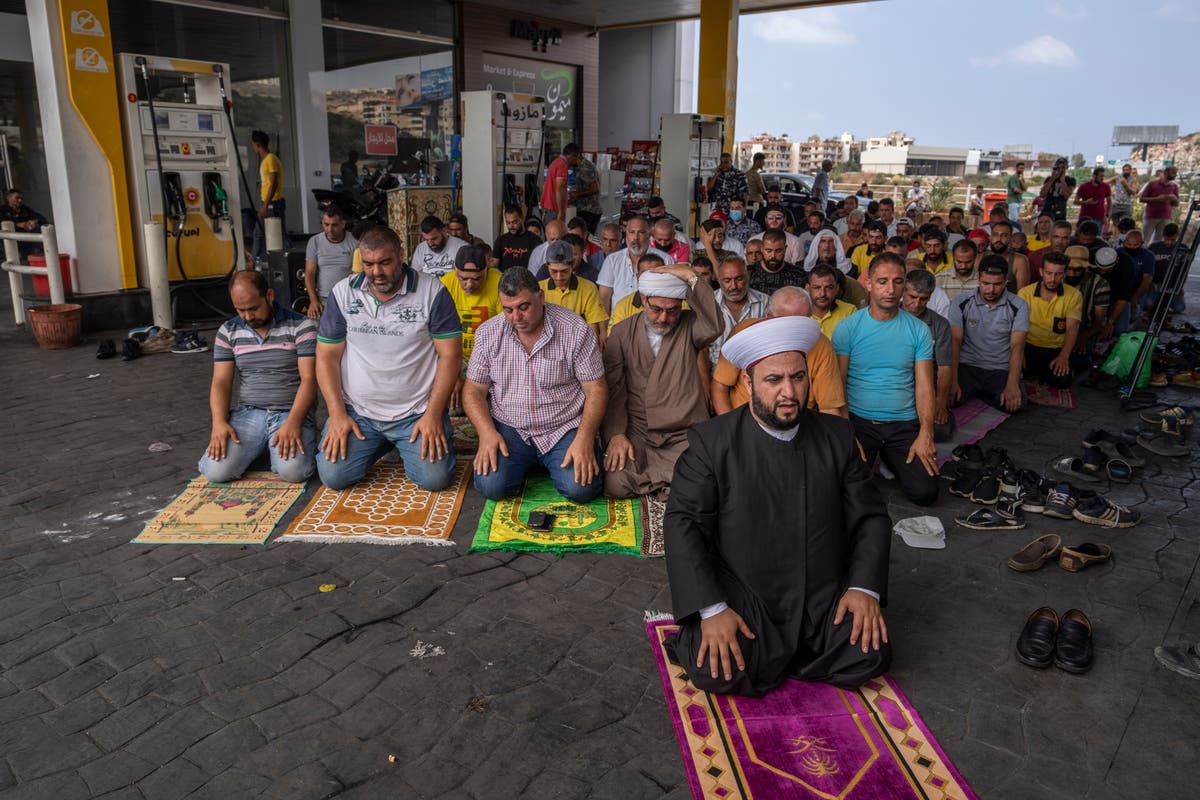
Dozens of worshippers knelt in prayer Friday at the center of hundreds of cars and unruly motorists surrounding a gas station south of Beirut
Sheikh Ali al-Hussein led the session to highlight the hardship suffered by people who could not leave their spots in line for gas during the worst economic crisis in Lebanon’s history. So, he says, he brought the mosque to the people, who were queued up for five kilometers (three miles) near a station in Jiyeh.
He blasted politicians for their corruption and mismanagement.
“The aim is to send a message to the political class which is to blame for the miseries of this nation,” he said.
The session underscored Lebanon’s economic and financial crisis, which has plunged more than half the population in poverty. The two-year crisis has been compounded by the pandemic and last year’s massive blast at Beirut port that killed at least 214 people and destroyed large parts of the city.
The results include crippling power cuts and severe shortages of gasoline and diesel that have been blamed on smuggling, hoarding and the cash-strapped government’s inability to secure deliveries of oil products.
Just to get gasoline, people must wait hours in line, commonly called, “queues of humiliation,” – and sometimes, in danger.
Some people cradle their computers behind the wheel while they wait. Others pass the time making calls or playing games on their cellphones.
Still more sweat silently for hours, hoping they don’t get caught up in a gun fight or fist fight – an increasingly common feature at congested gas stations across the country.
Sometimes, customers get their turn after a long wait in the sizzling summer heat and humidity, only to be told the power has gone out and the pumps stopped working.
Then there are those who overnight in the vehicles outside the gas station.
On Friday, the group of Lebanese worshippers took it a step further, holding mass Friday prayers at a station on a highway south of the capital Beirut, where the line of cars blocked the road.
The fuel crisis deteriorated dramatically in recent weeks after the central bank decided to end subsidies for fuel products — a decision that will likely lead to price hikes of almost all commodities in Lebanon, already in the throes of soaring poverty and hyperinflation.








